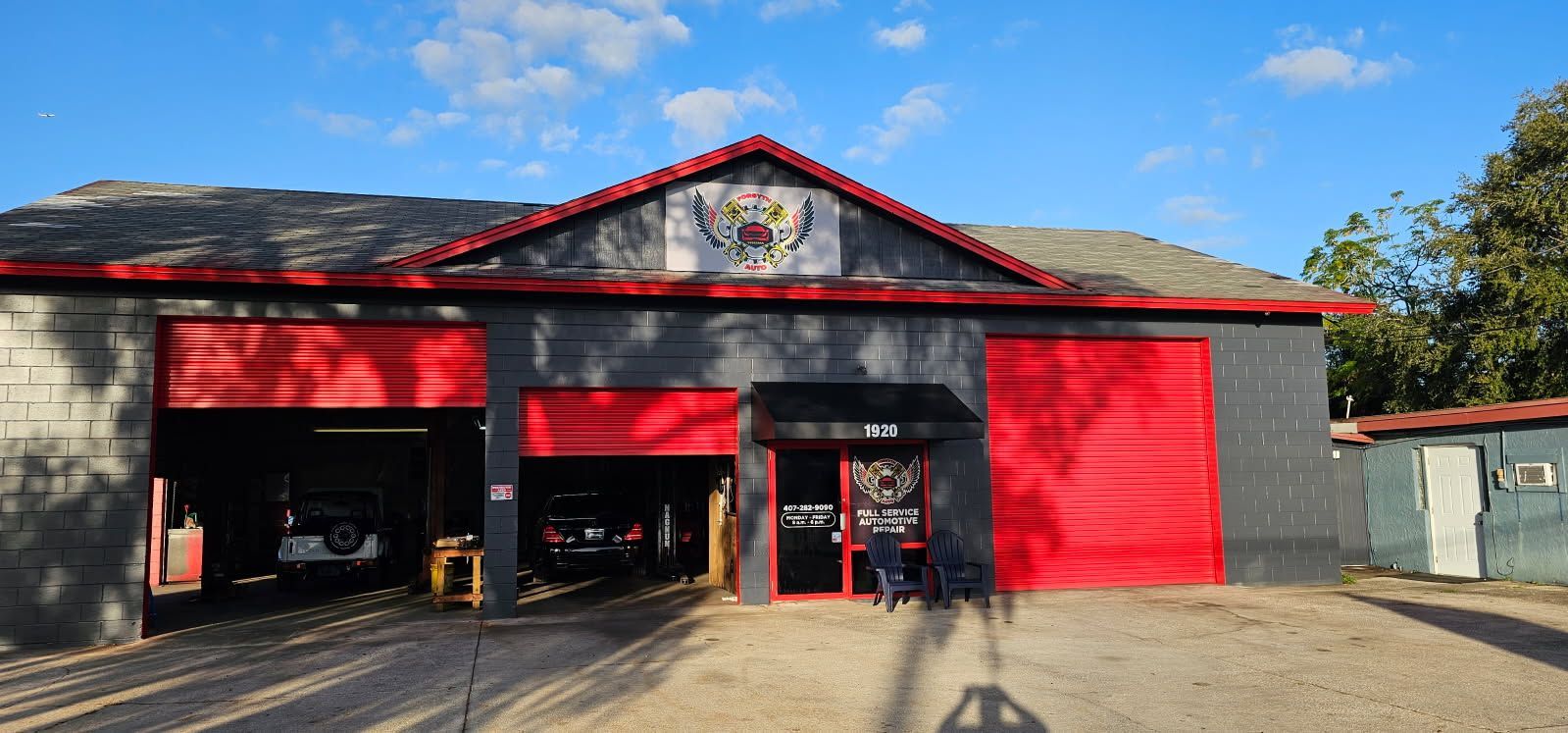Frequently Asked Questions
-
How Often Should I get my Oil Changed?
In Florida’s warm climate, frequent short trips and stop-and-go traffic can put extra stress on your engine oil. While the general recommendation is every 3,000 to 5,000 miles (or 3-6 months), newer vehicles using synthetic oil may go 7,500 to 10,000 miles. The heat and humidity can accelerate oil breakdown, so regular checks and following your owner’s manual are crucial.
Why It’s Important:
Florida drivers often deal with high temperatures and humidity, which can impact oil performance, prompting questions about proper oil change intervals.
-
What does a check engine light mean and should I be worried?
A check engine light in Florida can be triggered by issues such as a loose gas cap (often due to frequent refueling) or more serious concerns like engine problems. With Florida’s heat, components like sensors or the cooling system may wear faster. Bring your vehicle in for a diagnostic scan to avoid larger issues.
Why It’s Important:
Ignoring a check engine light could lead to costly or unsafe situations, especially in Florida's demanding driving conditions. Early diagnosis helps avoid breakdowns and keeps your car running safely.
-
How do I know if my brakes need to be replaced?
Florida’s flat terrain and stop-and-go traffic can wear brakes differently than in hilly regions. Watch for squeaking or grinding noises, longer stopping distances, or a spongy brake pedal. Salt air near coastal areas can also cause faster corrosion, making regular brake inspections essential.
Why It’s Important:
Brakes are critical to safe driving, especially in Florida’s unpredictable weather and heavy traffic. Ensuring they work properly protects you and other drivers.
-
What's the difference between synthetic and conventional oil and which one should I use?
Synthetic oil performs better in Florida’s extreme heat, offering superior engine protection and longer intervals between changes. Conventional oil may work for older vehicles, but it’s less effective at handling high temperatures. We’ll help determine the best option based on your vehicle and driving habits.
Why It’s Important:
Choosing the right oil protects your engine, especially in Florida’s intense heat, helping your vehicle perform better and last longer.
-
How long will my car repair take?
Repair times depend on the issue. Routine services like oil changes or brake pads may take 30 minutes to a few hours. For complex repairs, like A/C fixes or engine work, it could take a few days. In Florida’s hot weather, we prioritize A/C and cooling system repairs to keep you comfortable.
Why It’s Important:
Knowing repair timelines helps you plan, especially in Florida, where reliable transportation is essential for navigating frequent rainstorms or hurricanes.
-
How can I tell if my tires need to be replaced?
Florida’s heat and rain accelerate tire wear. Check for tread depth (2/32 inch or less), sidewall cracks, or bulges. Hydroplaning in heavy rain could indicate poor tire condition. Frequent inspections help ensure safety on Florida’s wet roads.
Why It’s Important:
Worn tires reduce traction, increasing the risk of accidents, especially during Florida’s rainy season. Replacing them on time keeps you safe on the road.
-
What is included in a Vehicle Inspection and how often should I get one?
A Florida-focused inspection includes checking A/C performance, tire condition for wet roads, and components prone to heat wear, like belts and hoses. Inspections should be done annually or before hurricane season to ensure your vehicle can handle evacuation routes.
Why It’s Important:
Regular inspections help identify potential problems before they escalate, ensuring your vehicle is reliable during Florida’s severe weather and high-traffic seasons.
-
Why is my car's air conditioning not working?
In Florida’s heat, A/C issues can stem from low refrigerant due to leaks, faulty compressors, or clogged filters. Salt air can also corrode components. We’ll perform a full diagnostic to restore cool air quickly—essential for Florida summers.
Why It’s Important:
A functional A/C system is vital for comfort and safety in Florida’s extreme heat, especially during long drives or traffic jams.
-
How do I know if I need a new battery?
Florida’s heat can cause battery fluid to evaporate faster, shortening its lifespan. Signs include slow engine cranking, dim lights, or corrosion on terminals. Most car batteries last 3-5 years in Florida’s climate. Regular testing helps avoid breakdowns.
Why It’s Important:
A healthy battery ensures your vehicle starts reliably, preventing unexpected breakdowns, which can be particularly inconvenient in Florida’s heat.


